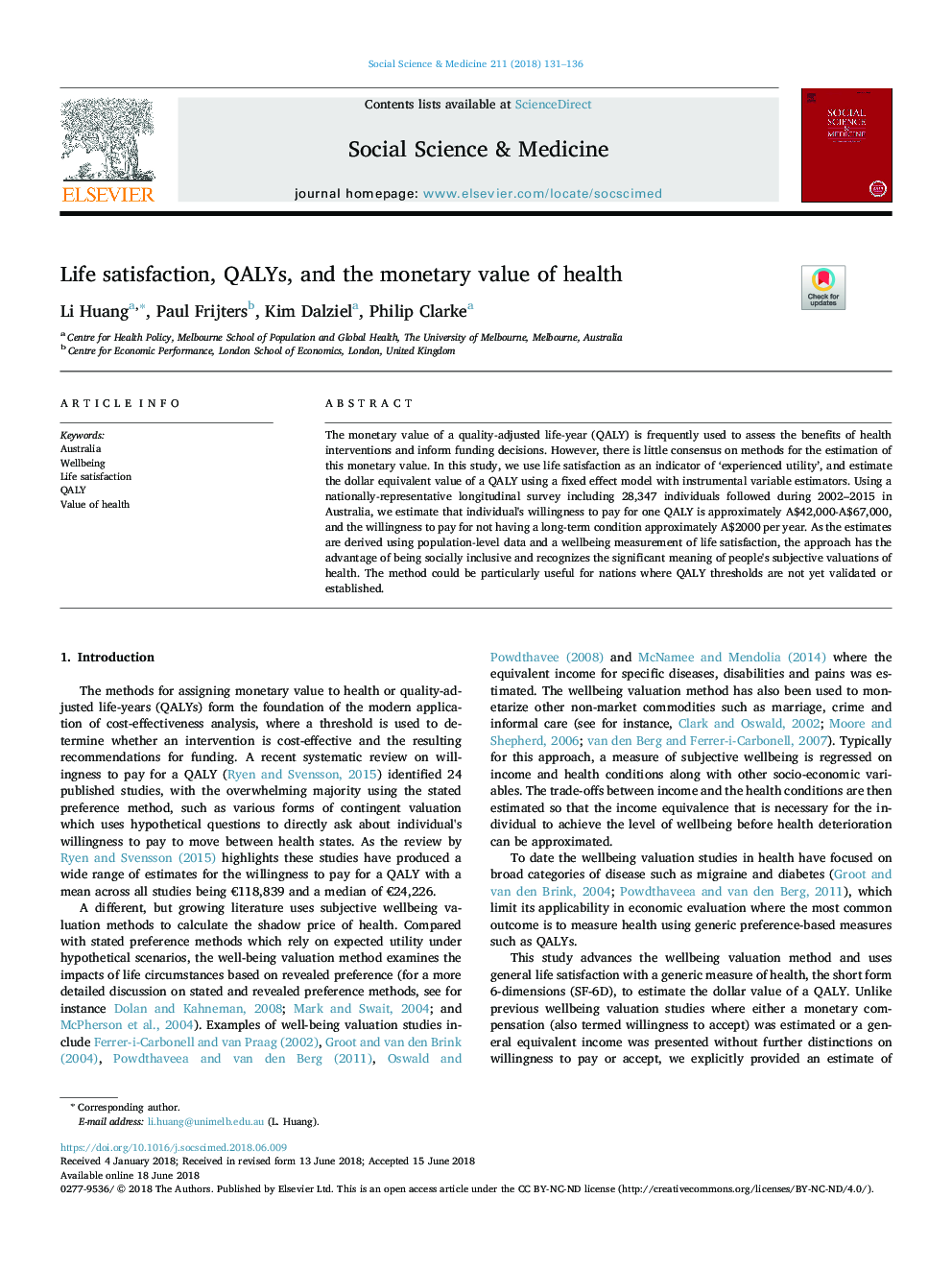| Article ID | Journal | Published Year | Pages | File Type |
|---|---|---|---|---|
| 7327422 | Social Science & Medicine | 2018 | 6 Pages |
Abstract
The monetary value of a quality-adjusted life-year (QALY) is frequently used to assess the benefits of health interventions and inform funding decisions. However, there is little consensus on methods for the estimation of this monetary value. In this study, we use life satisfaction as an indicator of 'experienced utility', and estimate the dollar equivalent value of a QALY using a fixed effect model with instrumental variable estimators. Using a nationally-representative longitudinal survey including 28,347 individuals followed during 2002-2015 in Australia, we estimate that individual's willingness to pay for one QALY is approximately A$42,000-A$67,000, and the willingness to pay for not having a long-term condition approximately A$2000 per year. As the estimates are derived using population-level data and a wellbeing measurement of life satisfaction, the approach has the advantage of being socially inclusive and recognizes the significant meaning of people's subjective valuations of health. The method could be particularly useful for nations where QALY thresholds are not yet validated or established.
Related Topics
Health Sciences
Medicine and Dentistry
Public Health and Health Policy
Authors
Li Huang, Paul Frijters, Kim Dalziel, Philip Clarke,
